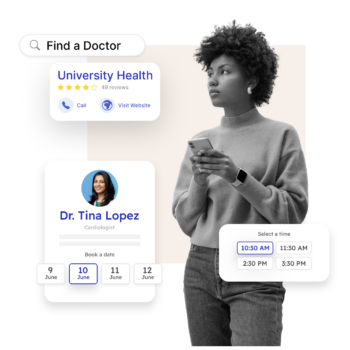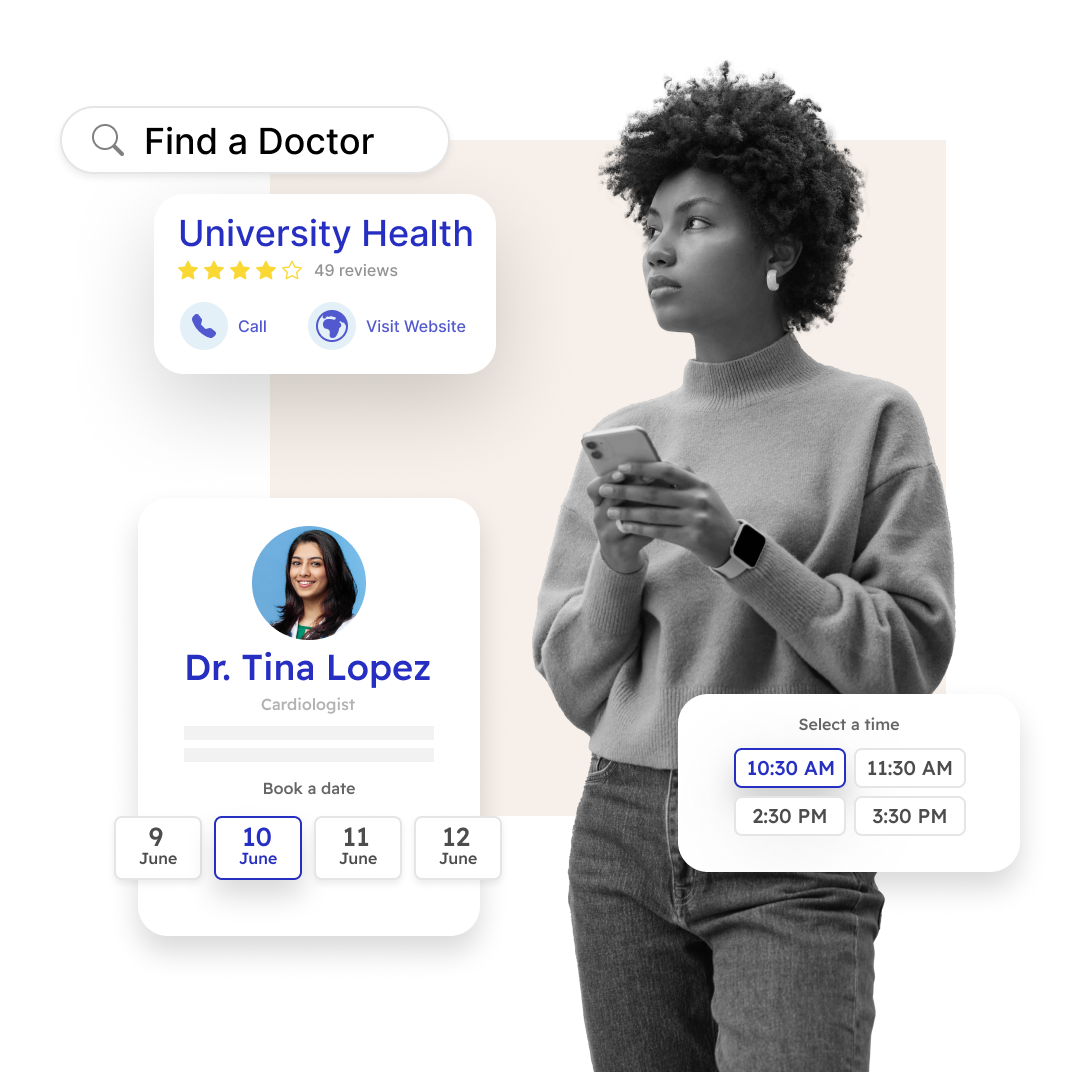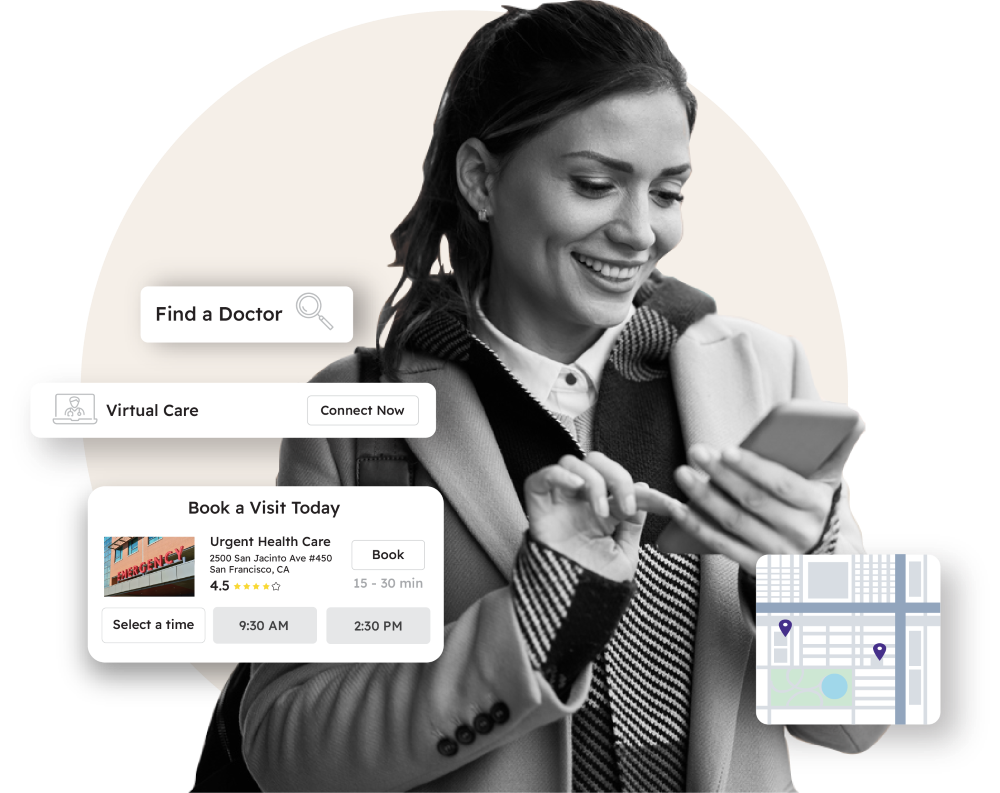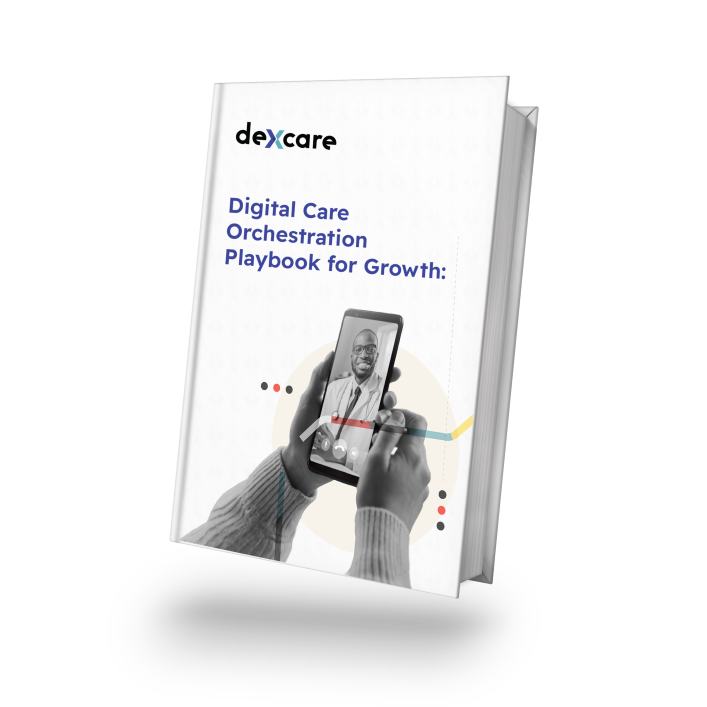E-Commerce has Lessons for Healthcare

Healthcare underwent major changes last year. As described by Forrester analysts, “Healthcare was redefined in 2020 as the industry transformed digitally at an unprecedented rate to adapt to the pandemic.” The COVID-19-driven shift to digital accompanied a surge in another emerging trend – the retailization of healthcare.
This evolution in consumer expectation predates the pandemic and has been on the rise as more people are taking on a greater share of their healthcare costs and expect a retail-oriented user experience. For consumers, there’s a wide variety of healthcare options available and traditionally limited transparency from the healthcare industry into comparison factors such as cost.
One very pandemic-specific shift in digitized healthcare is the explosion in virtual healthcare visits. Toward the end of 2019 Forrester predicted 36 million virtual healthcare visits in 2020, an estimate that dramatically rose to 480 million after the COVID-19-driven reality of 2020 came to pass. Now that consumers have experienced virtual healthcare visits on a wide scale, it’s expected the demand for virtual care will remain high for a number of reasons including convenience, reduced cost and other benefits.
The virtual care trend alone should spark healthcare companies’ interest in a digital transformation, but the industry faces challenges that retail and e-commerce businesses don’t necessarily have to address. An example is around 25% of Medicare patients don’t have access to high-speed internet. This means healthcare companies need to either tailor digital experiences to this large portion of their user base or at least offer a scaled-down “lite” version for web- and app-based user experiences.
What healthcare can learn from e-commerce
Beyond any digitization challenges unique to healthcare businesses, retail and e-commerce companies have put years of thought, experimentation and expertise into the digital customer experience. Knowledge that healthcare companies can draw on when moving toward a retail-oriented user experience for their customers.
Today’s customer is increasingly digitally native — or at least digitally savvy – relies on mobile, and expects a fast, frictionless user experience.
Here are some basic principles healthcare companies need to understand:
- Organic search should be an important part of any marketing strategy. SEO (search engine optimization) tactics such as content marketing and offering mobile optimized websites improve SERP (search engine response page) performance. And beyond organic SEO, SEM (search engine marketing) tactics such as pay-per-click advertising campaigns improve overall SEO results.
- Content marketing is the centerpiece of an SEO strategy. Healthcare companies have a leg up on many industries when developing a content marketing program. There’s a plethora of basic information about medical conditions, treatments and more to provide web visitors and app users, and there is always news to share around healthcare issues and legislation. The key is to provide informative, valuable content that visitors, customers and potential customers want and need.
- Speed matters in the digital user experience. Around 25% of generic website visitors will leave a site taking more than four seconds to load. For an e-commerce site those numbers are more like 40% of visitors bouncing at three seconds. Mobile users have even less patience with a slow user experience. One way to guarantee speed is to build an emphasis on performance into the foundation of the digital experience, such as performant frameworks, such as AMP or Qwik, for web assets.
- Embrace experimentation. Digital marketing is not a “set it and forget it” process. To continually optimize performance in a constantly evolving space, marketers should maintain testing and optimization programs across digital channels including email, SEO, SEM and more. The beauty of digital marketing is it is data-rich with metrics and KPIs that can be benchmarked, tracked and analyzed to optimize performance.
The retailization of healthcare is a reality in today’s marketplace. And the healthcare industry has faced a very rapid digital transformation largely due to an unprecedented global pandemic. Luckily, retail and e-commerce companies have already “been there, done that” and have hard-learned lessons and best practices the healthcare industry can now lean on to create the best possible digital experience for its customers.


 Veterans Affairs
Veterans Affairs




